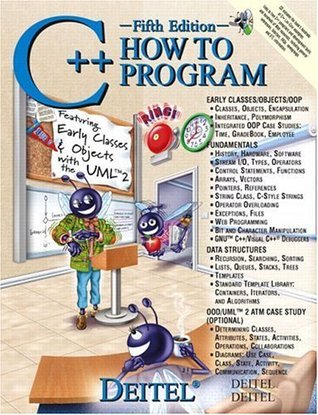With over 250,000 sold, Harvey and Paul Deitel's C++ How to Program is the world's best-selling introduction to C++ programming. Now, this classic has been thoroughly updated! The Deitels' groundbreaking How to Program series offers unparalleled breadth and depth of programming concepts and intermediate-level topics for further study. The books in this series feature hundreds of complete, working programs with thousands of lines of code. Deitels' C++ How to Program is the most comprehensive, practical introduction to C++ ever published-with hundreds of hands-on exercises, roughly 250 complete programs written and documented for easy learning, and exceptional insight into good programming practices, maximizing performance, avoiding errors, debugging, and testing. The updated Fifth Edition now includes a new early classes pedagogy-classes and objects are introduced in Chapter 3 and used throughout the book as appropriate. The new edition uses string and vector classes to make earlier examples more object-oriented. Large chapters are broken down into smaller, more manageable pieces. A new OOD/UML ATM case study replaces the elevator case study of previous editions, and UML in the OOD/UML case study and elsewhere in the book has been upgraded to UML 2. The Fifth Edition features new mini case studies (e.g., GradeBook and Time classes). An employee hierarchy replaces Point/Circle/Cylinder to introduce inheritance and polymorphism. Additional enhancements include tuned treatment of exception handling, new “Using the Debugger” material and a new "Before You Begin" section to help readers get set up properly. Also included are separate chapters on recursion and searching/sorting. The Fifth Edition retains every key concept and technique ANSI C++ developers need to control statements, functions, arrays, pointers and strings, classes and data abstraction, operator overloading, inheritance, virtual functions, polymorphism, I/O, templates, exception handling, file processing, data structures, and more. It also includes a detailed introduction to Standard Template Library (STL) containers, container adapters, algorithms, and iterators. The accompanying CD-ROM includes all the source code from the book. A valuable reference for programmers and anyone interested in learning the C++ programming language and object-oriented development in C++.

